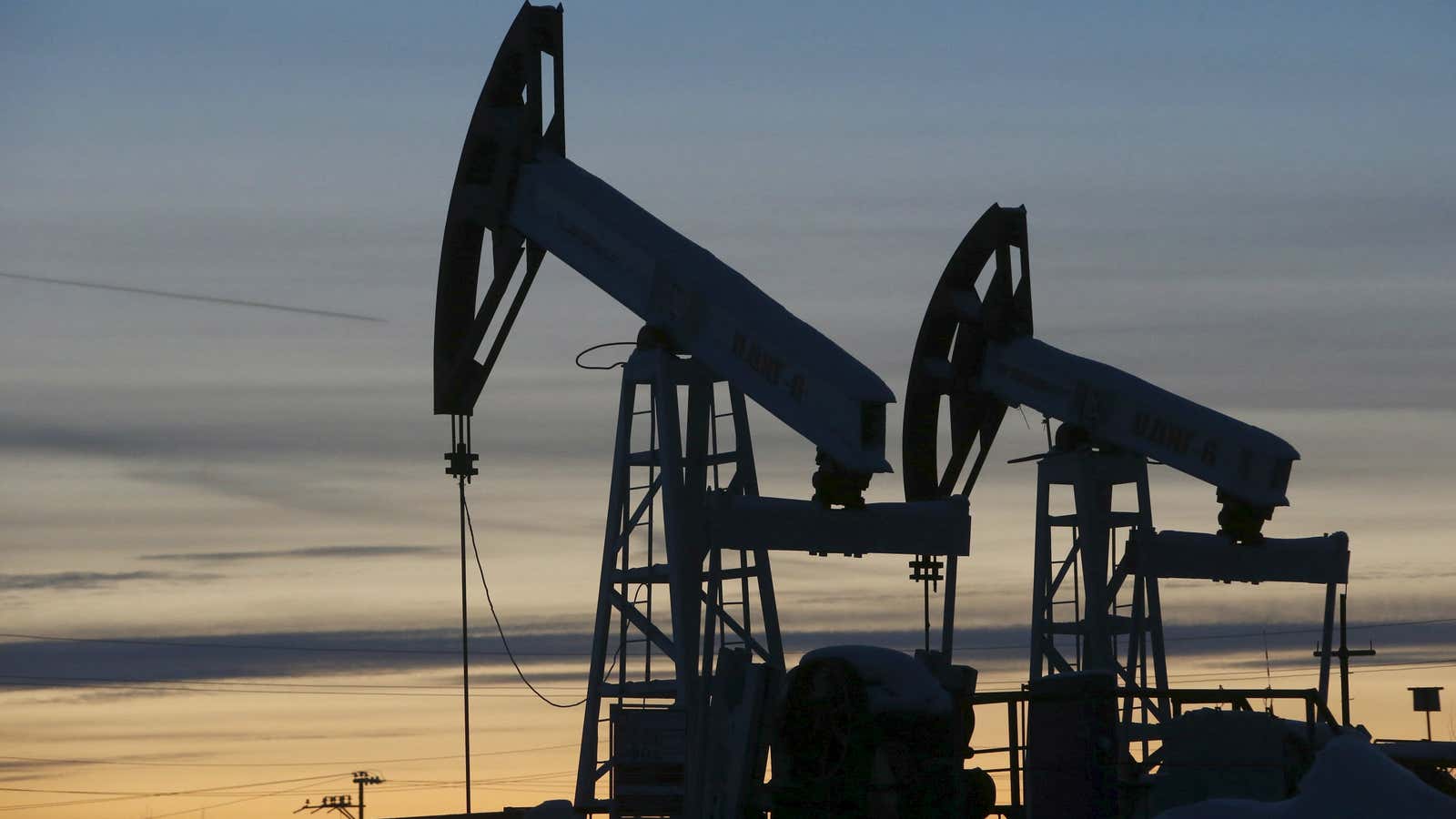Cheaper oil boosts an economy. It’s Econ 101. But while growth has been chugging along in America, it hasn’t been as vigorous as you’d expect with a 60% drop in oil prices since 2014. Former US Treasury secretary Larry Summers has called the lack of a big bounce one of the biggest economic puzzles of our time. Somehow, it may even turn out to be bad for the economy.
The economy should get a lift through several channels. One of the most significant is that lower fuel prices mean people have more money to spend on other things. A recent research note from Bank of America speculates the drop in oil prices, if permanent, will produce a $3 trillion transfer or wealth from oil producers to global consumers in the coming decades. Economist Jim Hamilton notes that, a year and a half ago, US consumers spent 5.3% of their budget on energy, now it’s just 3.7%.
But there’s mixed evidence Americans are spending their windfall elsewhere, which may explain why the economy isn’t growing more. Consumer spending data doesn’t indicate an increased rate of consumption since oil prices started falling in 2014. Instead, the savings rate has gone up.
But after examining individual credit card data, the JP Morgan Institute estimated people are spending up to 80% of the oil windfall. That’s now an oft-touted stat even though it’s not showing up in national data. What gives? It’s possible the big spenders that JPMorgan identified don’t have much weight when you add everyone up. Or it could be that people are saving for other reasons and consumption would be even lower if it weren’t for cheap oil. Nonetheless, the best thing to happen to American consumers in a decade barely registers in national figures.
In order to understand what’s going, we must acknowledge what’s special about the latest oil shock. First of all, the price drop was very large and very fast. Second, it was driven by both supply and demand.
An oil price shock is like a shock to your income. If prices fall, it’s a good shock; a bad one if they rise. Either way, spending behavior should change when a shock happens. But how much depends on a couple factors. The first is whether or not the shock was expected. Second, whether or not the change is temporary or permanent.
When an income shock is a surprise, people have less confidence it will last, or may fear another shock is coming soon. Since oil prices have trended up since the 1980s, the recent dramatic fall was highly unexpected, so it’s possible consumers don’t totally trust that prices will stay low. Americans surveyed by the Consumer Federation of America last year said they expected gas prices to increase 60% in the next two years and nearly double over the next five. When people think an income boost is temporary, they don’t spend the whole windfall, instead trying to spread its benefits out over time. That could explain the increase in savings we’ve seen. But the survey was from a year ago; another year of cheap oil might have given people more confidence that prices won’t soon spike.
And this time might, in fact, be different. In the past, oil prices moved around based on transient demand factors, like the surge in demand from China to fuel its growth. But now supply is playing a large role (i.e. fracking, increased production in the Middle East), which suggests low prices may last for a long time. And if Americans ultimately conclude cheap oil is the new reality, they’ll behave like it’s a permanent income increase. In that case they’ll start spending more, and we may see a big economic boost from oil after all.
